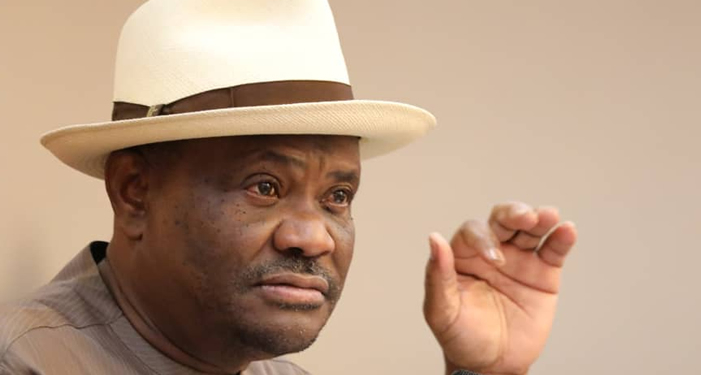Rivers Governor, Nyesom Wike, has accused the Supreme Court of being “lethargic” in resolving the legal dispute on the Value Added Tax (VAT) between the State and the Federal Government.
Wike spoke at the book presentation titled: Contemporary Essays on Law & Practice in honour of retired Justice Anwuri Ichegbu Chikere of the Federal High Court on Friday.
The Governor said though the entire country was waiting for the final legal decision of the matter at the apex court, the delay had allowed the Federal Government to keep collecting the tax.
He insisted that the matter had enormous constitutional implications and should be addressed succinctly, acknowledging that in reality, the judiciary remained the ultimate guardian of the nation’s Constitution.
He said: “While the entire country is waiting for its speedy resolution in the national interest, the Supreme Court of Nigeria remains lethargic in hearing this very important matter thereby unjustifiably aiding the Federal Government to continue to enforce its illegal and oppressive VAT policy on the polity.”
Wike said that judicial independence suffered greatly when judges were subjected to summary trials and preconceived indictments by an all-powerful quasi-judicial agency on the promptings of persons or parties with vested interest in the outcome of the litigation processes.
He accused the National Judicial Council (NJC) of becoming willing tool to intimidate judges, who were simply discharging their constitutional duties.
“By doing so the National Judicial Council (NJC) may be joining the league of unholy forces now assailing the independence and reputation of judicial officers across the country.
“My candid opinion is that the National Judicial Council must thread with utmost caution in matters of judicial complaints and discipline lest it wittingly or unwittingly turns itself into another bully to be feared rather than being respected in its roles as both the headmaster and guardian angel of the nation’s judiciary”, he said.
The governor said no nation could be seen and reckoned with to be free, fair and just without a strong, independent and functional judiciary.
He also observed that no democracy could survive, flourish and deliver social and economic progress without a courageous, efficient and effective judiciary.
Wike urged judicial officers to remember the time when the nation’s judiciary was truly independent, manned by men and women of courage, who were publicly trusted to deliver justice fairly and equally to everyone.
He said: “There was also a time when our judges were respected the world over for their independence, courage and credibility.
“Again, time was that decisions from Nigerian courts were widely accepted and celebrated across the world as timeless models of judicial precedents.
“But today, what is your candid assessment of the character and integrity of our country’s judiciary, which is becoming more confusing and painfully contradictory.”
Wike named some factors eroding confidence in the judiciary as case backlogs, poor case management and rampant delays in the administration of justice.
He said: “There are also serious concerns about the apparent lack of courage among several judges and the declining quality of judgements from our courts at all levels.
“Having succumbed to fear, intimidation and blackmail most of our judges are being compelled to tailor their judgments toward the wishes and desires of powerful political interests.”
Wike, however, commended the few judicial officers, who had kept hope alive with their extraordinary courage.
He acknowledging the years of meritorious judicial service of Justice Chikere saying as a judge, the celebrant demonstrated absolute independence of mind.
He also noted that Justice Chikere exhibited excellent judicial temperaments of being calm always, courteous and compassionate towards everyone, including her colleagues, lawyers and litigants in or outside the office.










Discussion about this post